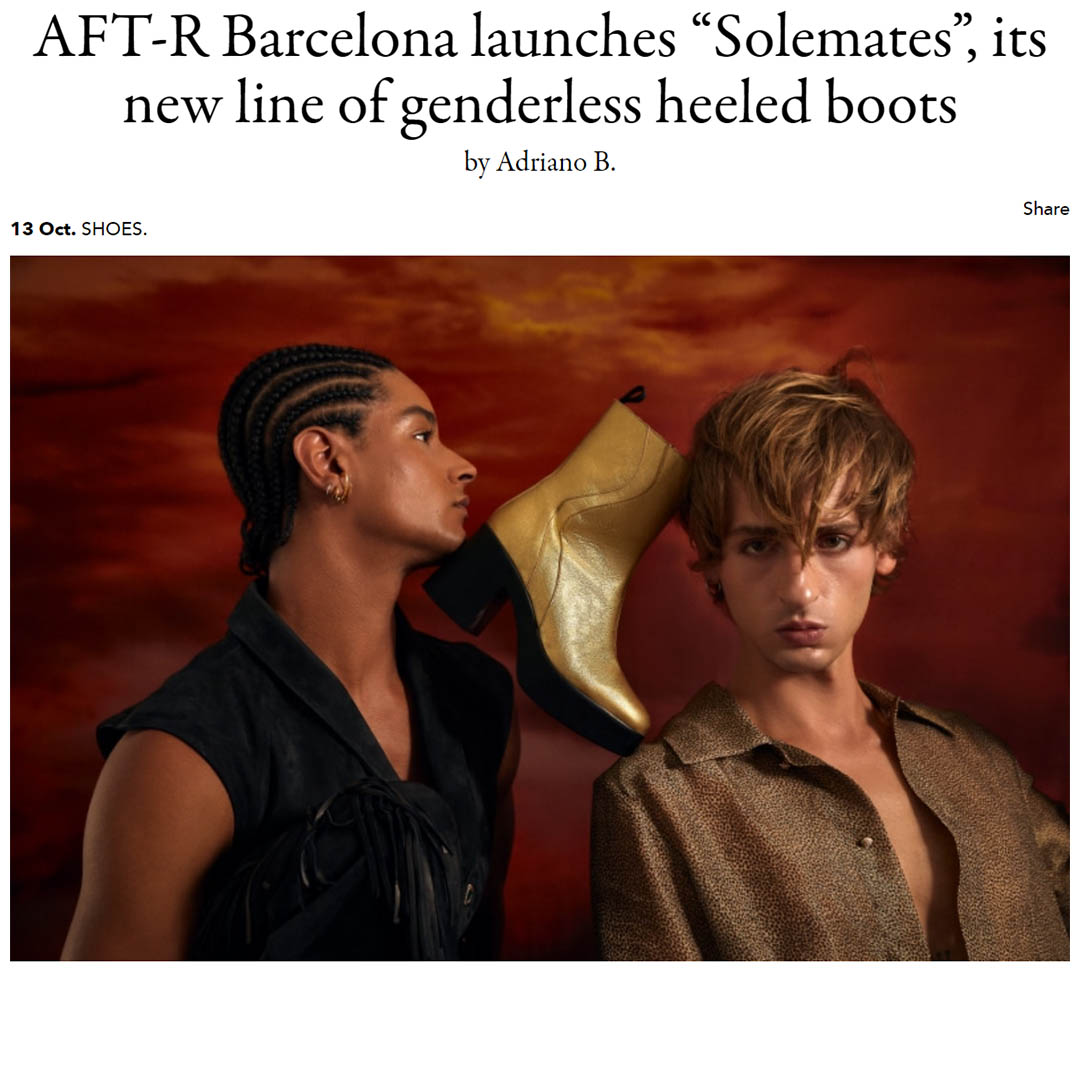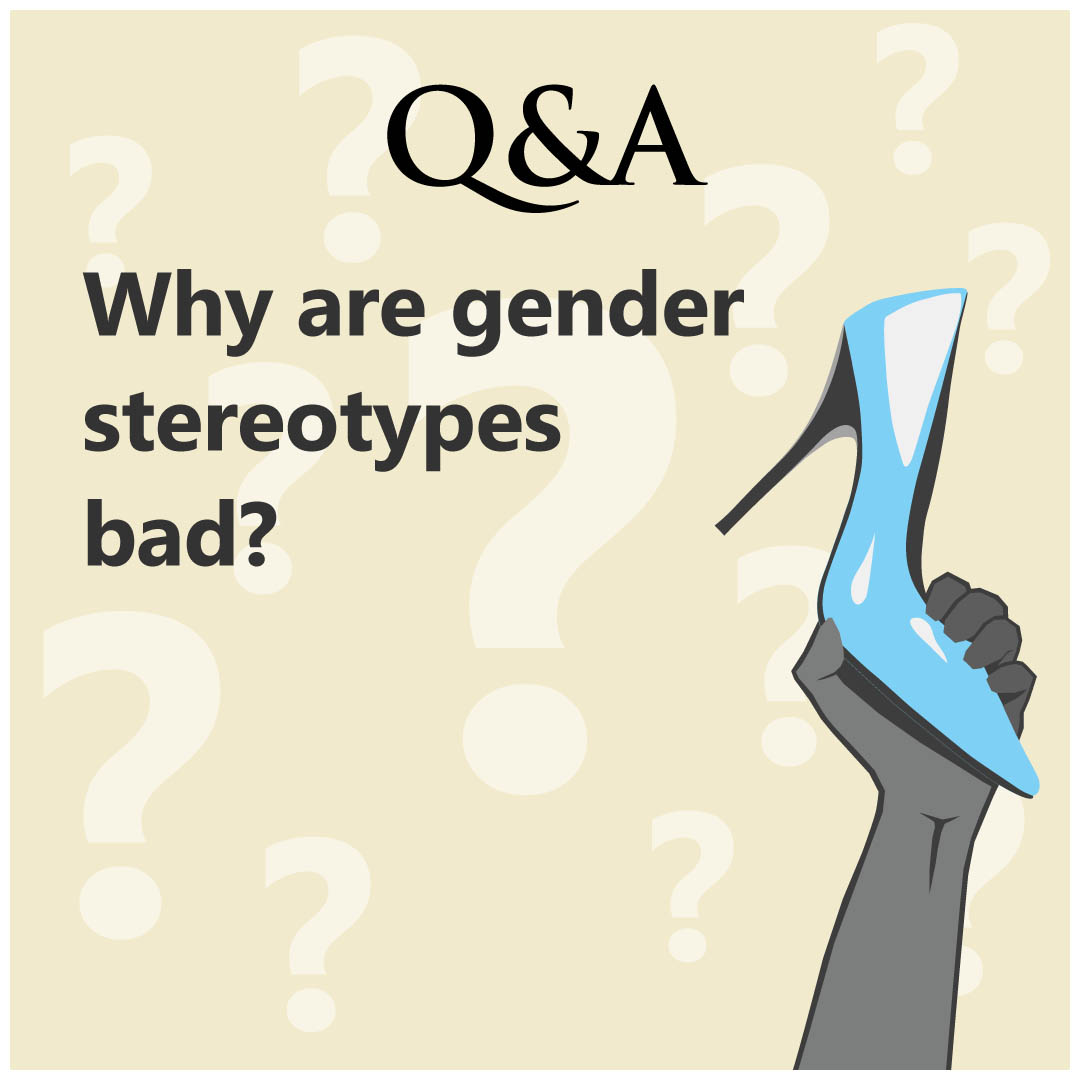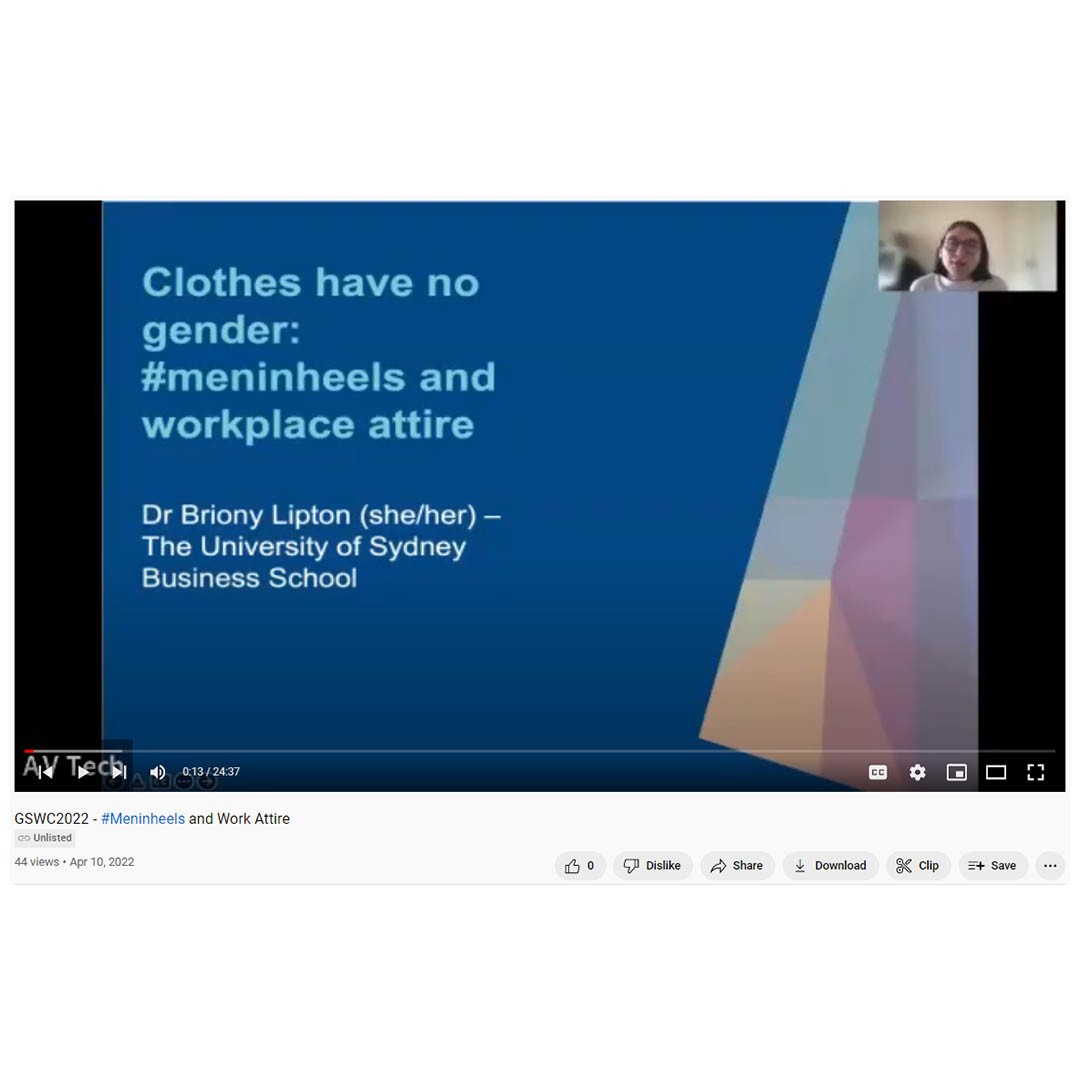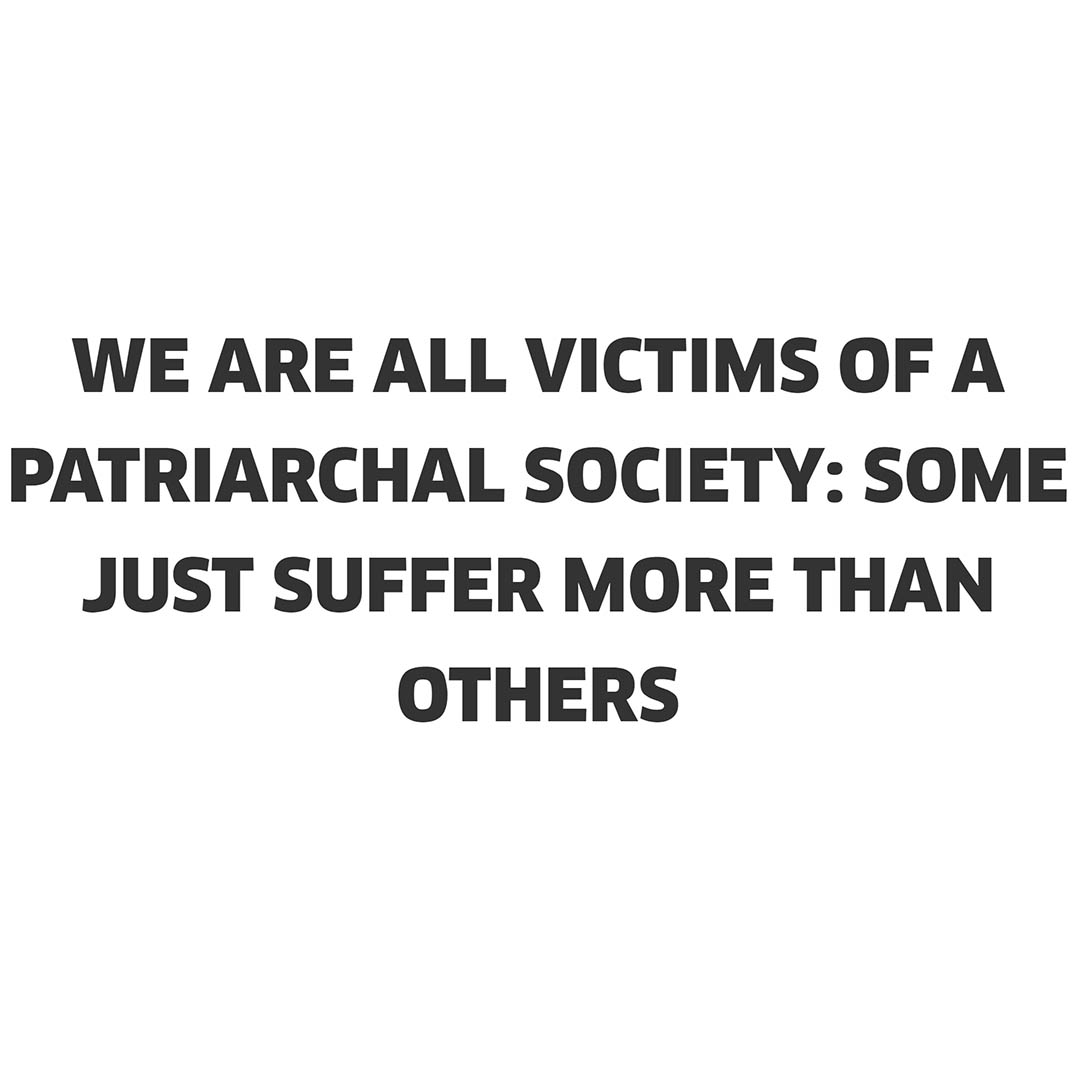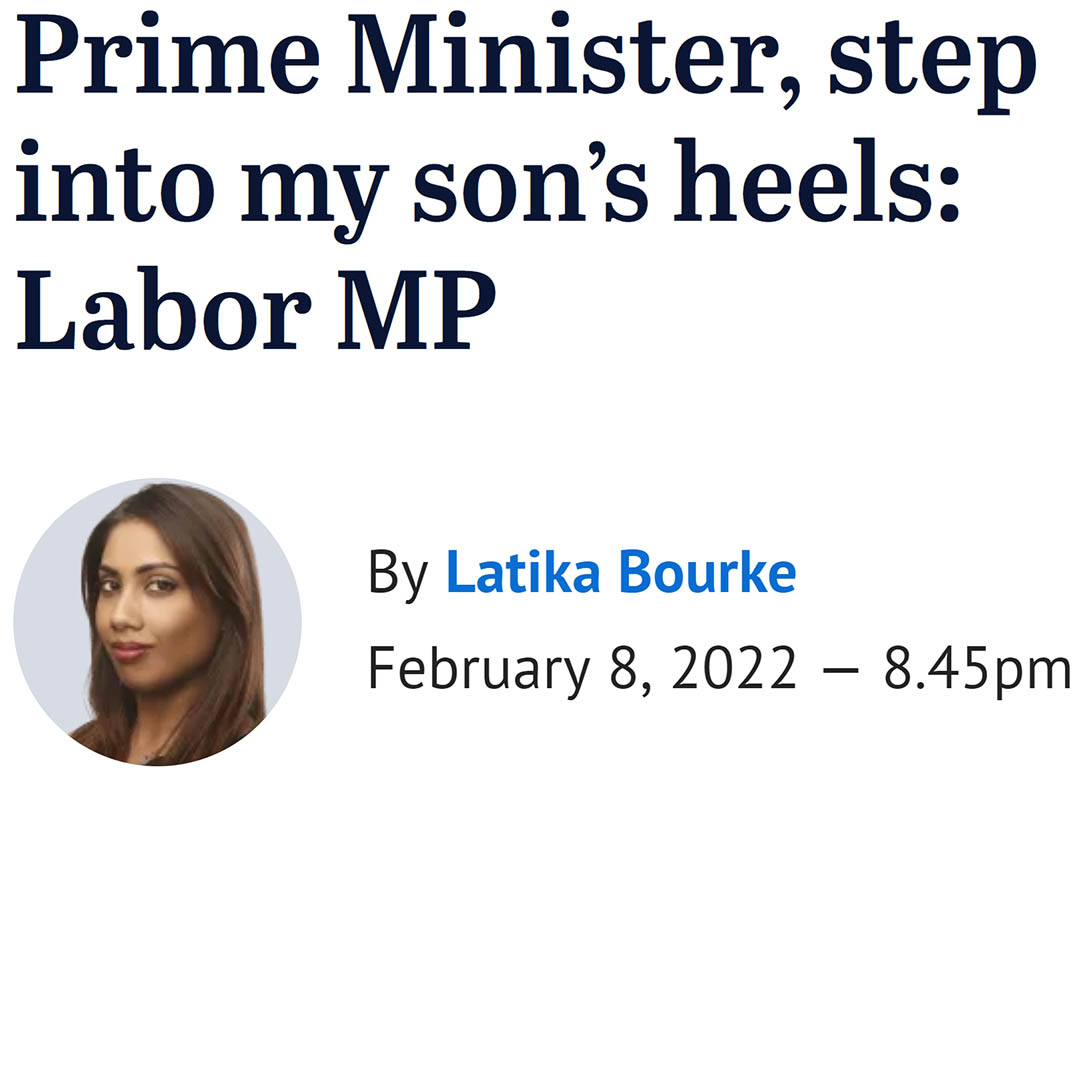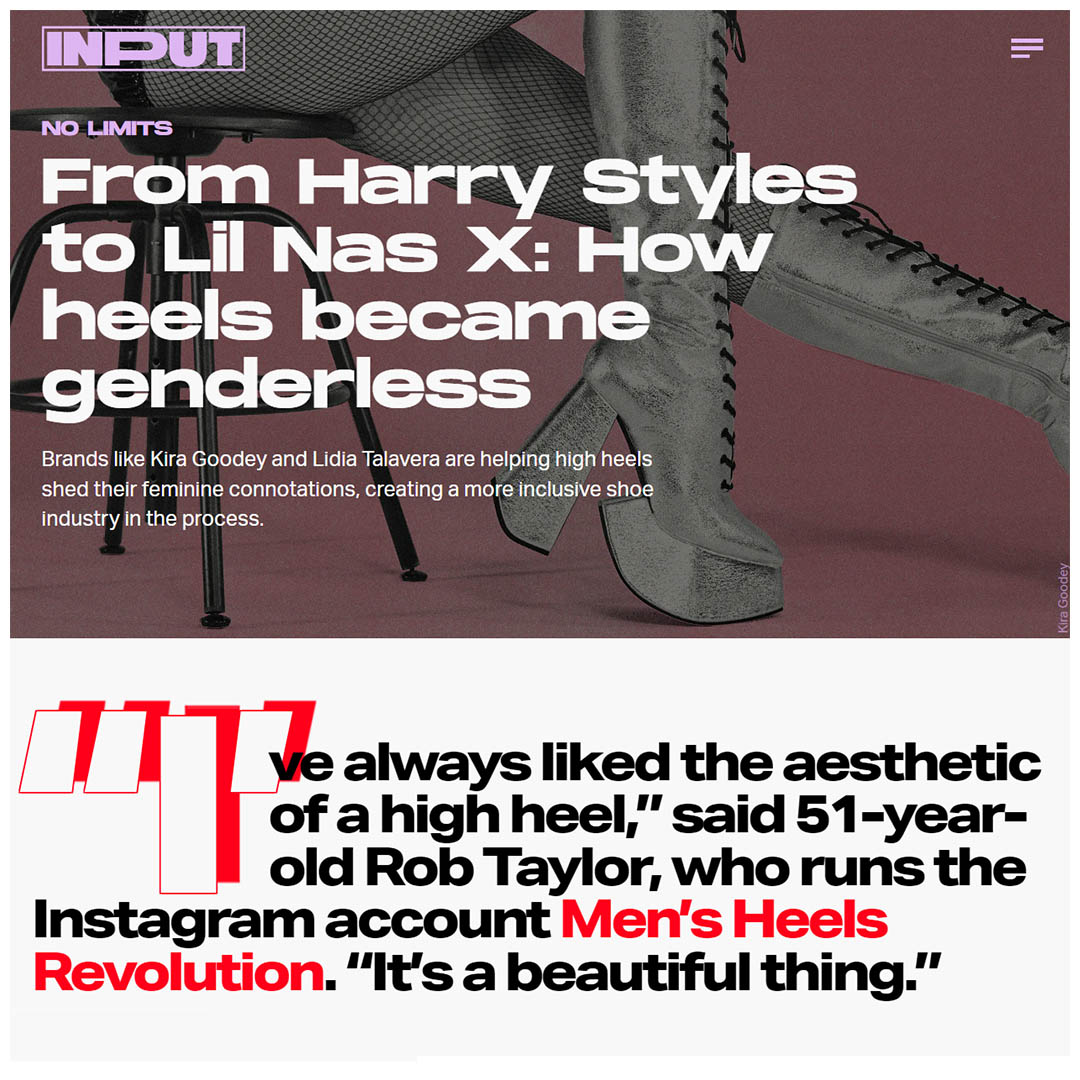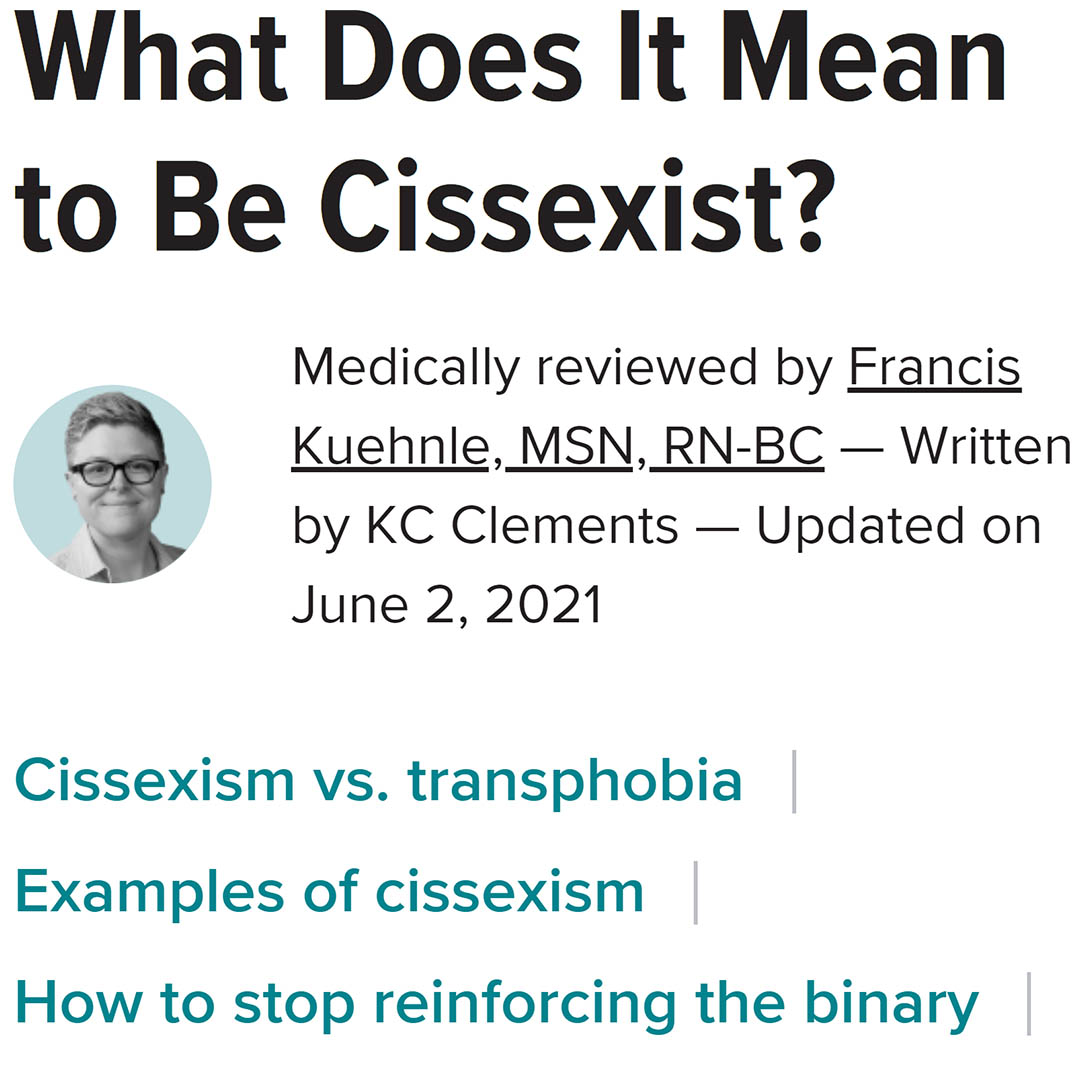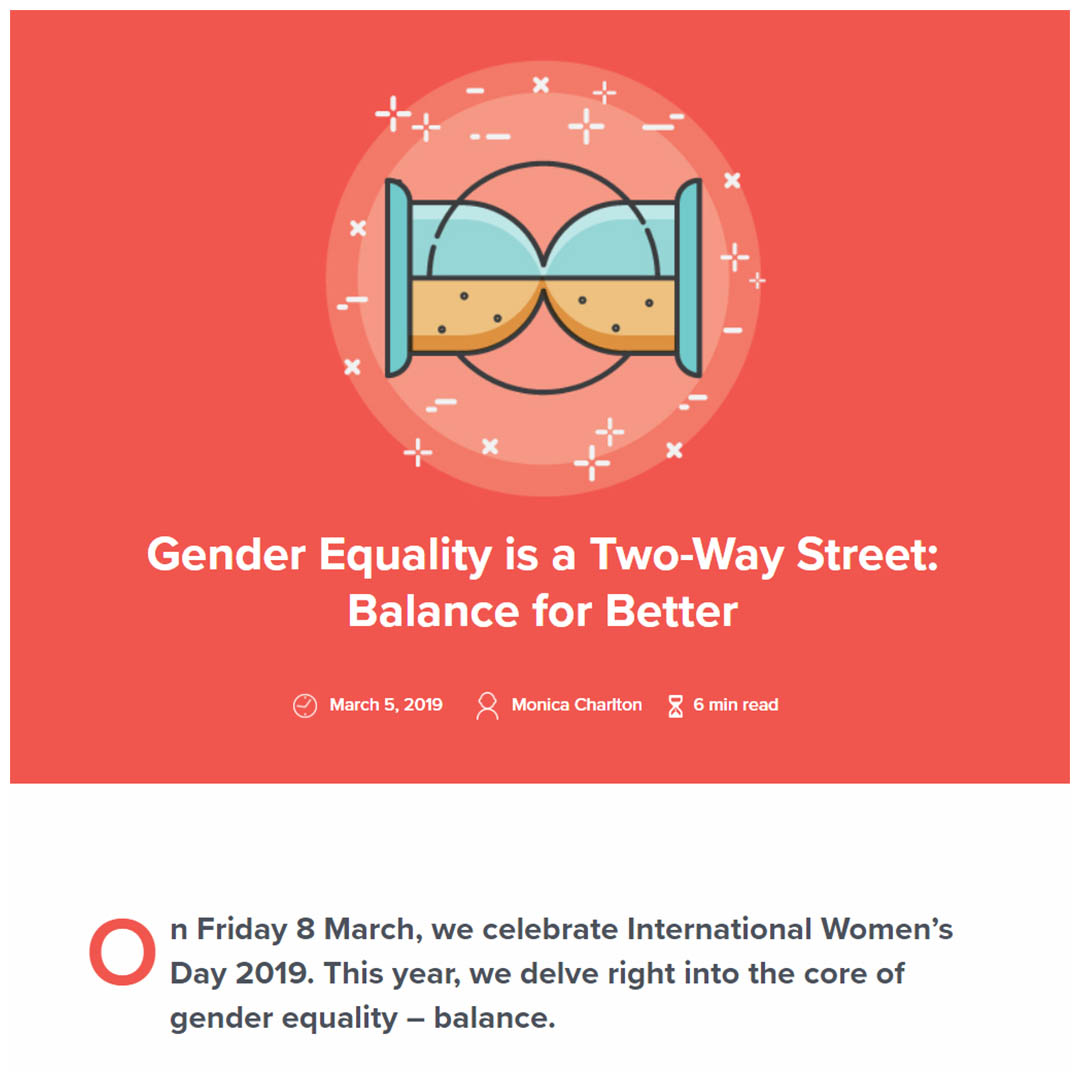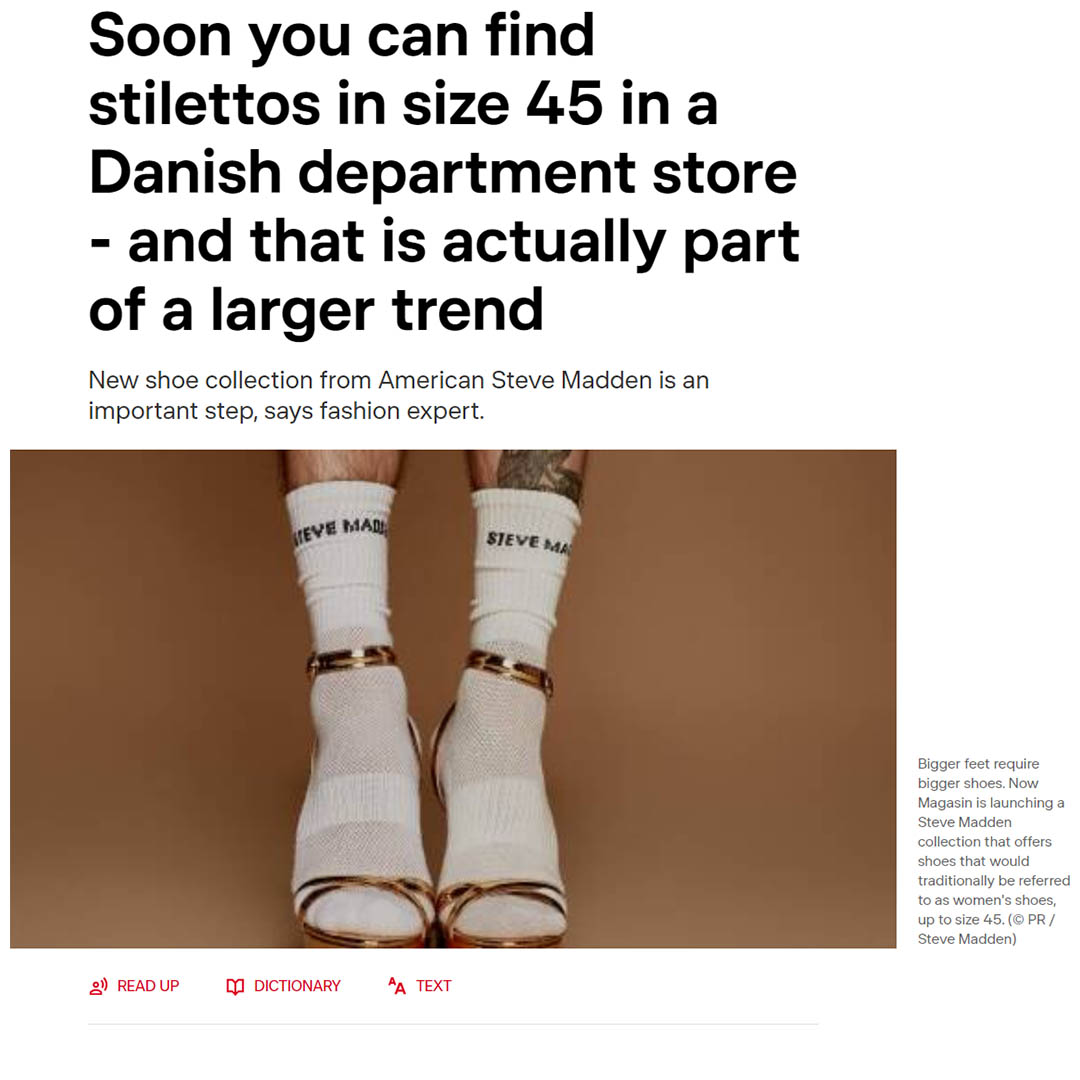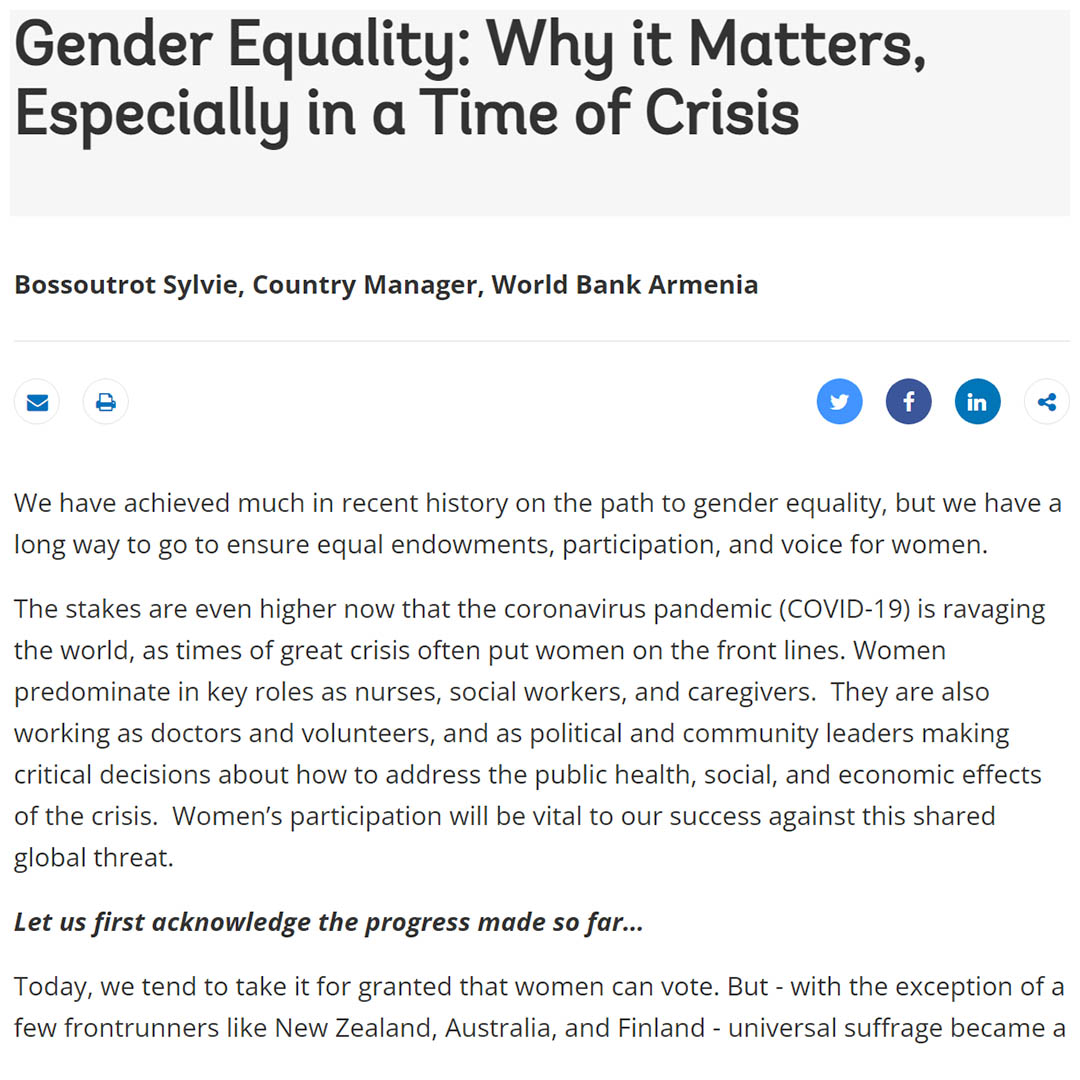Articles tagged with "Equality"
It's always great to see brands emerging with open minded attitudes towards clothing and gender. AFT-R Barcelona is a relatively new shoe brand who are now embracing genderless heels. It's a bold move for a relatively young brand, though their styles will certainly appeal to a large audience regardless of gender. With sizes from EU36 to EU44, there's clearly still some caution about the market for men with the absence of sizes above EU44, though it's still a welcome start and keeps the conversation going about heels for men.
From the article:
"AFT-R BARCELONA, a genderless shoe brand created in Barcelona in 2019 by Eric Turró and Alejandra Conesa, has always been known for advocating inclusion and diversity through footwear. Coinciding with its third anniversary, the project expands its family of products by adding the genderless high-heeled boot to its offer."
Original URL: https://fuckingyoung.es/aft-r-barcelona-launches-solemates-its-new-line-of-genderless-heeled-boots/
Posted: 12 January 2023
Why are gender stereotypes bad?
A gender stereotype is defined as an overgeneralisation of characteristics, differences and attributes of a certain group based on their gender. Typically this is most widely understood in the context of the gender binary of men and women. For example, women are often portrayed as being emotional, caring, nurturing and in need of protection. Men are often characterised as being leaders, rational, career driven and strong. However, a gender stereotype is harmful when it limits the group’s capacity to develop their personal abilities, pursue professional careers and/or make choices about their lives.
Other examples are where assertive women are called “bitches” and “whores”, while men who don’t appear or act masculine are called “sissies” or “wimps” or assumed to be gay, which is a very offensive stereotype in the LGBTQIA+ community.
Gender stereotypes are complex and originate from local culture and traditions. Children learn what constitutes female and male behaviour from their family and friends, the media and institutions including schools and religious bodies. Gender stereotypes can have an adverse effect on all genders, as young people find themselves regularly exposed to messages about how boys and girls should look, behave and play. These socially accepted and often unconscious ideas start to form in infancy.
Gender stereotyping results from unconscious biases held by all of us. Unconscious bias happens when our subconscious makes assumptions about people based on their background or perceived background.
Everyone has unconscious biases. An individual can be unconsciously influenced by a stereotype even if they do not rationally subscribe to it. Becoming aware of our biases and working to counter them is an important way to combat the negative effects of gender stereotypes.
Unconscious bias arises because we have to process vast amounts of information every second. In order to avoid being overwhelmed, our brains have to make assumptions based on previous experience and find patterns to speed up decision making.
However, these assumptions tend to be based on simple characterisations of people such as their age, race or gender. They are communicated through micro-messages such as body language and choice of words. This is more likely to happen when we are stressed or tired, and can cause problems by affecting our beliefs and treatment of others.
As our society moves to a broader construct of what “gender” means, individuals who are stuck in this binary idea of gender have a difficult time wrapping their brains around individuals who do not fit into a strict gender dichotomy, or do not identify with any gender at all.
We are easily thrown in terms of our interactions with others for whom our brain has not been programmed to stereotype to some degree. This is because stereotyping enables us to make sense of the world – at least sometimes. Someone who considers themselves “Gender Fluid,” or “Gender non-conforming,” threatens the stereotypes we are familiar with and for that reason can seem is weird and/or threatening because we can’t even stereotype them.
Mainstream media & advertising have a powerful role to play in defining the gender stereotypes that we perceive, so much so that in June 2019 the Advertising Standards Authority (ASA) in the UK banned "gender stereotypes that are likely to cause harm, or serious or widespread offence" following a review.
The ASA said the review had found evidence suggesting that harmful stereotypes could "restrict the choices, aspirations and opportunities of children, young people and adults and these stereotypes can be reinforced by some advertising, which plays a part in unequal gender outcomes".
"Our evidence shows how harmful gender stereotypes in ads can contribute to inequality in society, with costs for all of us. Put simply, we found that some portrayals in ads can, over time, play a part in limiting people's potential," said ASA chief executive Guy Parker.
Media defines culture, and culture defines change. Individuals may see thousands of advertising messages a day in social media, TV, movies, newspapers or magazines. Those messages matter, because they influence our perceptions of gender.
When it comes to the portrayal of men in media, the fact is that harmful stereotypes do exist about what it means to be masculine, focusing on power dynamics, domination of other men, subjugation of women, violence and aggression. When this gender inequality occurs in the background of gender stereotyping, this is in the most basic sense sexism.
We’ve written new scripts for our daughters about strength and leadership, which are slowly starting to gain representation in media, but what about our sons? What do we want to redefine about their future manhood? New definitions can emerge, though they are often in conflict of our understanding of the world through existing stereotypes. The quantity and quality of advertising messages will largely determine how quickly and how well new roles are defined and adopted by men.
We need to stop seeing challenges to rigid gender roles as a threat, and instead question what’s working for us now and what’s no longer working. The truth is that some gender stereotypes can hold both men and women back from being the best that they can be - and impact our mental health.
Take some time to evaluate the gender stereotypes you frequently encounter and ask yourself whether they truly work to elevate your potential equally alongside others or at their expense because of their gender. Are they genuinely a threat to you or are you simply unconsciously obeying gender stereotype programming which you’ve received since you were born?
When we see a gender non-conforming person in our daily life experience, men in heels being only one example, we should recognise not only the privileges we have in our own position, but the background of inequality within which they have risen through with the mental strength and courage to step outside in the face of gender stereotyping. We may judge them for being "weird", within our own limited experience, or we can regard them as a strong, courageous and individual blueprint for new and positive role models.
Posted: 21 December 2022
While many curious men explore their gender identity at home, often with items of clothing they've acquired by mail order services, they may consider showing up at their workplace in those items as an unattainable dream. There is however some serious research being done in this area by many people to determine the sociological effect of workplace attire and how people who are gender nonconforming, non-binary, genderqueer and so forth are challenging the norm in the workplace.
From the Gender Sexuality at Work Conference 2022, Dr Briony Lipton gives this compelling presentation of her work on "Men In Heels And Workplace Attire" which forms part of a larger project "Invisibilities Of Gendered Inequality In The Age Of Remote And Hybrid Work". Her research on gender equality and changes in professional attire is particularly interesting as it addresses a fundamental shift in our pandemic and post-pandemic work lives where many of us now regularly work from home, or have a hybrid home/office arrangement with who we work for.
She explores "Queer Heterosexuality" and whether there are ways in which straight men can disrupt the dominant paradigm of the straight-masculine and whether this can help to communicate, challenge and influence organisations and individuals perceptions of gender and sexual identities and their perceptions of equality and inclusion in the workplace.
With notable mentions of @MarkBryan911, @The_Heads_Count, @AlokVMenon, @TheeBillyPorter, @GentlemanHeels and @Mens.Heels.Revolution there are a number of other Instagram accounts featured in the video which we'll leave you to discover for yourselves.
Original URL: https://www.youtube.com/watch?v=_UCe441EoYI&list=PLhOObpoQndRlSrCjtoprhSRUWCa_qqZ8h&t=4s
Posted: 15 October 2022
Mahamuda Rahman, Communications Officer at Cordaid gives us this perspective on Patriarchy in this interesting blog post.
Why a post about patriarchy? you might ask... because it's all part of a system of oppression that is bad for all of us and helps to maintain the status quo, including the gender stereotypes and social norms that we want to deconstruct.
"The truth behind this propaganda is that some people just love to keep their power and they invent these convenient dichotomies. There is nothing natural about it."
"In patriarchal societies and systems, men have been claiming for centuries that women are inferior to them. By nature."
Original URL: https://www.cordaid.org/en/news/we-are-all-victims-of-a-patriarchal-society/
Posted: 26 August 2022
The Sydney Morning Herald reports on the speech made by Australian Labor MP Stephen Jones to Parliament during the debate on the proposed Religious Discrimination Bill.
Mr Jones talked about his Son's gender identity and revealed the grief that his family had borne from the suicide of his gay nephew. He implored the Prime Minister to see things from another point of view by putting himself into his son's heels.
This is an important story, which we will come back to again for more reports, as it highlights the front-line in creating legislation which removes discrimination and provides support for people who want to live their lives authentically and without compromise.
Original URL: https://www.smh.com.au/politics/federal/prime-minister-step-into-my-son-s-heels-labor-mp-20220208-p59uv0.html
Posted: 27 June 2022
Our founder, Rob Taylor, had the pleasure of being interviewed by Hayley Lind (@hayleyclind) for this feature in Input Magazine (@input).
"Hayley was motivated to approach me by the amount of media coverage which I had referenced on heels for men for this piece." said Rob, "She certainly agreed with my findings that there was a definite trend happening in the fashion world for men to wear heels again".
Anchored with commentary from Rob throughout, the article explores the "genderless heels" trend with insights from independent designers who have changed their manufacturing and marketing methods to accommodate an inclusive approach where shoes are for all, regardless of gender. The article also uncovers why inclusive sizing is not quite as simple as to achieve you might think it could be, though not a problem that can't be solved.
We're delighted to get this great coverage and hope it will be the first of many!
Original URL: https://www.inputmag.com/style/harry-styles-lil-nas-x-mens-high-heels-genderless-kira-godey-lidia-talavera
Posted: 6 June 2022
Cissexism: "The belief or assumption that cis people’s gender identities, expressions, and embodiments are more natural and legitimate than those of trans people." Healthline digs deeper into this topic which many may not even know exists.
Original URL: https://www.healthline.com/health/transgender/cissexist
Posted: 16 April 2022
This is a great article from Polyglot Group, a global Human Resources company and provides a perspective on gender equality in the work place.
- How does this relate to men in heels?!
"Equality is not just a women’s issue.
This is also the main message of #HeForShe, the UN Women campaign that sparked global debate about the place of men in contemporary feminism.
Launched in 2014, the initiative calls 'men and people of all genders to stand in solidarity with women to create a bold, visible and united force for gender equality'."
- How does this contribute to the slow pace of change in men's fashion?
"Today, traditional gender roles only serve to restrict people, confining them to stereotypes and tropes born out of an antiquated society and public consciousness.
In fact, the perpetuation of these stereotypes is largely how gender inequality and injustice have endured throughout human history."
- Why a man in heels visualises an important message for all...
"Both men and women should feel free to be sensitive. Both men and women should feel free to be strong… it is time that we all perceive gender on a spectrum, not as two opposing sets of ideas."
Well worth a read.
Original URL: https://www.thepolyglotgroup.com/blog/gender-equality-is-a-two-way-street-balance-for-better/
Posted: 19 November 2021
Summary: Danish magazine DR reports on Danish department store, Magasin (@magasindunord), stocking the new range of inclusive sized shoes soon to be launched by @SteveMadden and how shoes in larger sizes benefit everyone regardless of gender.
"Every time you do something that creates a visible equalization of gender differences it will in the long run help to create more equality between the sexes"
This is a great article and reflective of change that is happening in the fashion footwear industry. Bravo both @SteveMadden and @magasindunord!!
Special thanks go to @gender_free_universe and @willgonzalez1726 for leads on this story.
Posted: 18 November 2021
This article from The World Bank highlights the importance of Gender Equality in relation to the Coronavirus pandemic. Many of the critical caregiving roles required during the pandemic are carried out by women, many of whom do not have gender parity with comparable roles carried out by men. The article underlines, once again that equality for women is a requirement for equality for everyone.
Original URL: https://www.worldbank.org/en/news/opinion/2020/04/13/gender-equality-why-it-matters-especially-in-a-time-of-crisis
Posted: 29 July 2021
